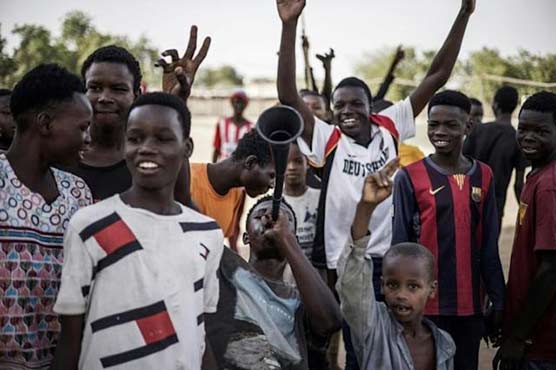Chad votes with 30-year ruler Deby poised for sixth win

Chad has struggled with poverty and instability since gaining independence from France in 1960.
N’DJAMENA (AFP) - Chad headed into presidential elections on Sunday in which Idriss Deby Itno, the country’s ruler for the last three decades, looks assured of a sixth term.
A key ally in the West’s anti-jihadist campaign in the Sahel, Deby, 68, is frontrunner in a six-candidate race without major rivals after a campaign in which demonstrations were banned or dispersed.
Chad has struggled with poverty and instability since gaining independence from France in 1960.
Its leader, Deby, is a former rebel and career soldier who seized power in a coup in 1990 and has twice, with French help, thwarted attempts to oust him.
Other candidates include Albert Pahimi Padacke, 55, a former prime minister under Deby, and Felix Nialbe Romadoumngar, 64 -- officially "leader of the opposition" as his URD party has eight seats in the National Assembly.
Lydie Beassemda, 54, a former minister of agricultural production, is the first woman to run for president in Chad’s history.
She is pitching her campaign on federalism, in a country where ethnic rivalry is common, and on women’s rights, in a culture where patriarchal domination is entrenched.
But seven other candidates were rejected by the Supreme Court and three withdrew, including longtime opposition politician Saleh Kebzabo, who quit in protest over violence by the security forces.
Protests banned or dispersed
Weekly protest marches urging a peaceful transfer of power have been banned or forcefully dispersed.
On February 28, the police and soldiers carried out a commando-style raid on the home of a prominent would-be candidate, Yaya Dillo Djerou. His mother was among at least three people killed, and he is now on the run.
Human Rights Watch (HRW), Amnesty International and UN Secretary General Antonio Guterres are among those who have voiced criticism.
The United States on Thursday urged Chad’s election supervisors and courts "to ensure these elections are conducted freely, fairly, and transparently."
"We’ll be watching in the days ahead," US State Department spokesman Ned Price warned.
But Deby has also benefited, as before, from divisions and weaknesses within opposition ranks.
Francois Djekombe, president of the opposition Sacred Union for the Republic, said efforts to mobilise the public had been weakened by internal squabbles, poor leadership and inadequate communications.
"Let us humbly acknowledge that we have failed," he said ahead of polling day. "It’s clear that people don’t want the popular revolt that we tried to impose."
Kelma Manatouma, a Chad expert at the University of Paris-Nanterre, said "with the considerable means Deby has mobilised, it is certain he will win."
A clan of nomadic Arab herders, sheltering in makeshift tents at the southern approaches to N’Djamena, complained the Deby government has forgotten them, but many said they will still vote for him for the stability he brings.
Peace and security
All they want is a parcel of land and some wells with potable water, which they are currently forced to buy from farmers who live in brick homes across the road and who enjoy access to dozens of wells.
"I will vote for Idriss Deby," 35-year-old Zenaba said in the baking heat at the nomadic camp at Walia Tradex. "It’s true he has done nothing for us poor people, but at least he has established peace and security."
The Arab Muslim herders from the north have clashed violently in the past with the farmers from the south, who are mainly Christian and animist.
Chad has been an oil producer since 2003, but it remains deeply poor.
In 2018, 42 percent of the population lived below the poverty line, according to the World Bank. In 2020, Chad ranked 187th out of 189 countries on the UN’s Human Development Index.

